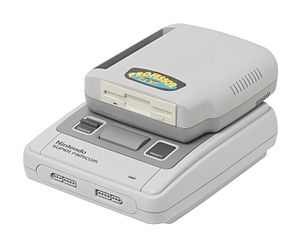Game backup device
Recently flash cartridges, especially on the Game Boy Advance and Nintendo DS platforms, only support the latter function; they cannot be used for backing up ROM data.
Video game companies consider these devices as a tool for reverse engineering to facilitate copyright infringement.
legal action has been taken by companies such as Nintendo to remove these devices from the marketplace, but the easy dissemination of information and selling of products over the Internet has made it difficult to eradicate this problem.
Nintendo attempted to counter piracy by slightly modifying the hardware in newer revisions, but they were unable to stop the unauthorized copying.
Later, the Famicom Disk System was discontinued, supposedly because cartridge technology had caught up in capacity, but the influence of rampant piracy cannot be discounted.
[citation needed] When the Super Nintendo Entertainment System was released, Hong Kong based companies developed products with similar functionality.
[citation needed] The copier devices and dissemination of hardware information through BBSes made it possible to start developing software on the video game consoles.
It is important to note that no commercially produced Backup Device for Super NES can play back games which use additional processing hardware in the cartridge, with the sole exception of DSP-1.
A relatively small number of games fall into this category, but there are notable games included, for example Mega Man X2, Mega Man X3, Star Fox, Kirby's Dream Land 3, Super Mario RPG, and Super Mario World 2: Yoshi's Island.
The NEO N64 Myth Cart was released in December 2009, long after the Nintendo 64 had been discontinued, and is marketed for retro gamers.
The NEO N64 Myth Cart connects to a PC using USB, and ROM images are stored in flash memory.
Schematics, PCB designs and source code for a cartridge emulator known as "PVBackup" were released by Valery Pudov.


